- Home
- H A CULLEY
The Sacred War Page 3
The Sacred War Read online
Page 3
And that worried Iphitos. He knew that as soon as the Macedonians entered Potidaea they would pillage, burn and rape their way through the city. He had become infatuated with Chloe and he owed her for saving him from the watch, as well as introducing him to the delights of sex. He was determined to save her and so he raised the matter with Sostratos, to whom the boy had now been assigned as his aide.
At first the taxiarch wasn’t keen. The boy was a good aide and he felt that would be putting himself in too much danger but, when Iphitos suggested that he took an tetrachium of cavalry with him to dash through the streets so he could get to Chloe’s house before that area was pillaged, he agreed. His motivation wasn’t exactly selfless; he calculated that presenting Chloe to Philip to help him celebrate the capture of the city would advance him in the king’s regard. He was well aware that Philip was critical of Parmenion’s choice of him as a taxiarch and believed it was pure nepotism as Parmenion was his uncle, which it was.
So he eventually agreed but he made the boy draw a sketch for him of how to find the house. That gave Iphitos a problem as he had approached and left the house by the client’s entrance in the alley. He knew that there was a main entrance which led from the street into the central courtyard, but he didn’t know where exactly the street was. He therefore drew a plan of how to find the alley.
Two days later the lithoboloi demolished enough of the temporary wall for the way into the city to be open, even if it meant climbing up over a pile of rubble first. Emyntor lined up his infantry ready for their assault. Two tagmas, one of lightly armed spearmen and one of peltasts led the way. They were agile enough to climb up the rubble heap and to clear the way for the heavy infantry. A chiliarchy of hoplites came next, armed with sword and shield; their long sarissas would be worse than useless in close quarter fighting. Their job was to exploit the bridgehead made by their lightly armed compatriots and to hold it whilst the gang of labourers – mainly enslaved inhabitants from the surrounding area – cleared a path through the rubble.
Two thousand more hoplites would then expand the bridgehead and start to spread out through the city. Finally the cavalry led by Sostratos would ride through the town to capture the south gate and prevent the residents from escaping. Philip was well aware that some would have already got away into the Pallene Peninsula by that time, but Sostratos could send the bulk of the cavalry to round them up in due course.
Iphitos and his tetrachium would enter the city as soon as the way in was clear enough for horses to negotiate it without risking broken legs. The tetrarch commanding it had clear orders that Chloe was not to be harmed and was to be brought to Sostratos as soon as it was safe to do so.
He knew that his aide would be angry with him. He had expected just to keep Chloe safe until the sack was over and then she could return to her trade, albeit with new clients. However, what the lad didn’t know was that Philip intended to pull down the walls and fire the city, destroying it, before handing the site over. He was confident that the Chalkidikeans, although disappointed, would be content with recovering Pallene .
When Parmenion asked him for his reason for the complete destruction of Potidaea, Philip explained that sooner or later he would need to conquer Chalkidike and he didn’t want to have to retake the city again.
‘I’m sure that they’ll accept it,’ he concluded, ‘when I point out to them that it’s not in their interest to leave behind a fortified city on the Isthmus which Athens could easily capture and hold against them.’
The attack commenced at dawn and all went well until the first wave of Macedonians reached the top of the heap of rubble from where they could see into the city. The Potidaeans had used more stone from the south wall to build a further wall fifteen feet high as an inner defence. The only way through it was a small gate which banged shut after the last defender was though it. The Macedonians had lost five hundred men in the assault and had gained nothing. Even worse, the new section of wall wasn’t visible from the far side of the canal and so the lithoboloi had nothing to aim at.
-o0o-
Xanthos , the representative of Thebes on the Council of the Delphic Amphictyonic League, was rubbing his hands with glee. The council had decided to fine Phocis heavily for their ejection of the priests who managed the estate together with their slaves. They declared the seizure of the land illegal, even though it had originally belonged to a Phocian noble, and ordered the Phocian strategos, Philomelos , to give it up. He had refused and had garrisoned the estate to prevent the priests from reclaiming it.
As a result the league had declared war on Phocis and Xanthos anticipated the country being divided between the other members of the league, with Thebes taking a major share. Naturally, he expected to do well out of the coming war and expected to be given more land to add to the estates throughout Boeotia that he already owned.
It therefore came as something of a shock when he heard that Philomelos and his Phocians had seized the Temple of Apollo and the city of Delphi. Xanthos was scandalised but worse news was to follow.
An emergency meeting of the council of the Amphictyonic League had been called at Thebes and the representative of Athens had arrived with the startling news that Philomelos had emptied all the treasuries at Delphi in order to hire mercenaries throughout the Hellenic world. He was even reported to be hiring Persians. The only bit of good news was that it would take some time for Philomelos to muster his hired army, and so the league needed to act now, before it was too late. The Sacred War had begun.
-o0o-
Meanwhile Philip had other things on his mind. He had never anticipated that Potidaea would prove to such a hard nut to crack. He looked around the large tent made of woven and oiled goat hair that served as both his home and his headquarters on campaign. Parmenion, Sostratos and Emyntor were already there and shortly afterwards a flustered looking Demetrius entered the tent. By now the chief engineer and head of logistics was decidedly portly. Philip looked at him with distaste but he knew that the man was good at his job.
‘Right, now that we are all here, at long last,’ he glanced at the panting Demetrius, who blushed as he sat down on a stool and took a goblet of wine from a servant, ‘I want to bring you up to date with the latest situation.’
This surprised everyone because the only thing on their minds at the moment was the siege of Potidaea.
‘The Thebans and Athenians sent an army to free Delphi from the hands of Philomelos and the Phocians as quickly as possible. However, they obviously attacked before they had gathered a large enough force and Philomelos defeated them on the plain below the city. Those who he captured he threw to their deaths from the Phaidriadai Rocks as punishment for supposed sacrilege against the Temple of Apollo. Naturally Thebes and Athens were incensed and I think we can look forward to a long, bloody and acrimonious war. The good news for us is that the whole of Eastern Greece will be too busy to worry about us for some time to come.’
Philip paused and downed the rest of his goblet before holding his arm out for it to be refilled. He belched and continued.
‘However, the news from Attalus is not so encouraging. His men intercepted an Athenian messenger to the Thracians. The letter he carried offered bribes to the Thracians and said that Grabus of the Taulantii , a major tribe in Illyria, had agreed to join them if they would invade Macedonia. Presumably their aim is to force us to abandon the siege of Potidaea. I’m not worried about Grabus for the moment because there is a large buffer between his lands and mine, but I need to persuade the Thracians to forget about invasion.’
‘What will you do, basileus? Surely you won’t abandon the siege?’
It wasn’t Emyntor’s place to interrupt the king and, in any case, it was Parmenion’s prerogative to ask the first question as strategos.
‘Be quiet, taxiarch, the king hasn’t finished!’ Parmenion barked at him.
Philip flashed both of them an annoyed glance. He was well aware that they didn’t get on, no more than Parmenion got on with his fell
ow strategos, Attalus. The thought crossed his mind that, good as Parmenion was as a commander, he had his faults. The strategos liked to appoint his own subordinates, which is why he didn’t like Emyntor , who was the king’s choice, and he was jealous of his position as the king’s right hand man, which is why he didn’t like Attalus. He ignored both men.
‘I’m leaving tonight to join Attalus. I’ll take my companions with me.’
Parmenion looked alarmed. That would mean that he would lose two of his three epihipparchia of cavalry and a chiliarchy of hoplites. That would reduce his force to under five thousand in total, scarcely more than the defenders could muster if you included the Athenian chiliarchy.
‘Now, before I leave, we need to decide on a strategy for capturing this place. Yes, Demetrius; what is it?’
‘Well, basileus, we could build a mound for the lithoboloi so that the crews could see the inner wall.’
The king looked astounded.
‘Brilliant! Why didn’t anyone else think of that? Well, done Demetrius. Right, get on with it. Parmenion, let me know the moment that the city has fallen. And don’t forget; the Chalkidikeans can have the site but I want the city demolished and the stones thrown in the sea so they can’t re-build it easily.’
-o0o-
Iphitos led his tetrachium through the street in a mad dash to get to Chloe’s house before the plundering Macedonians could get there. Demetrius’ idea had worked and this time, when the wall was reduced to rubble, there was nothing in the way of the attackers except for the Potidaean militia. The Athenians had withdrawn into the acropolis and were holding it against the Macedonians, not that they were trying to capture it at the moment. After six months of siege they just wanted to get their revenge on the inhabitants.
The boy reached the entrance to the alley but, instead of heading down it to the back entrance, he continued, turned left and then left again. They were now in a wide street with big houses on either side. Each lay behind a high wall with a big wooden gate in the centre for horses and carts to enter. Iphitos knew that each house had a courtyard behind the wall which contained stables; the main house laying behind a further wall with a doorway. Most houses were painted white but the boy recalled that Chloe’s house was painted a pale yellow. Suddenly he saw a yellow house behind one of the white walls and told his men to halt.
He dismounted and knocked on the gates but there was no response.
‘Come on Thuróros , open up. We don’t have a lot of time to get Chloe to safety.’
A few seconds later the gate was cautiously opened and Thuróros ’ fat face cautiously peered out at him.
‘Iphitos!’ he yelped. His face lit up with relief, then he saw the forty Macedonian cavalrymen that filled the street, surrounding the youth and the blood drained from it.
‘We don’t have a lot of time. The city is being looted and then burnt to the ground. Get your mistress for me now.’
One of the soldiers brought two riderless mounts forward.
As soon as she appeared the boy’s heart melted. He had almost forgotten how lovely she looked. There were a few appreciative noises from his soldiers as well. She smiled at him but didn’t say anything as Thuróros helped her into the saddle. The old doorkeeper hoisted her personal maid up behind her and then climbed onto the second horse himself. He didn’t bother to shut the gate and, as the cavalcade rode away, the rest of the slaves escaped into the streets and alleys of the city.
Thuróros had never ridden before and clung onto the horse’s mane for dear life. One of the cavalrymen laughed and took the reins out of his nervous hands and led his horse. They weren’t making for the northern exit, but for the southern one. Even with an escort, it would be too dangerous to try and make their way through streets full of drunken, lecherous, hoplites with two beautiful women. Besides, smoke now rose into the air from numerous parts of the city to the north and soon the conflagration would be so intense that it would be impassable.
They made it to the south wall without incident but there they hit the first problem. The streets near the one gate in the south wall were packed with inhabitants desperate to escape from the city. To make matters worse the gates were shut and being defended by a detachment of Athenians. Iphitos couldn’t understand what they thought they would gain by this, but he knew he had to do something. He realised that the city was doomed but he didn’t want to see their women and children massacred; far better that they escaped into the peninsula, even if they were rounded up and sold as slaves later.
From his vantage point on his horse he looked towards the gate and the walls beside and above it. There were a dozen archers on the wall and perhaps twenty hoplites in front of the gates keeping the crowds at bay with their spears.
‘Right, I want you to stay here with ten men here to guard the women,’ he told the tetrarch. ‘The rest of you come with me.’
Iphitos took his men through the more or less deserted back streets to where a set of wooden steps led up to the parapet that ran inside the top of the wall. Leaving five men with the horses, he led the other twenty five up onto the parapet. Armed with spears and shields the group advanced on the archers, who didn’t see them coming until the last moment.
They got off a volley or arrows, most of which struck the cavalrymen’s shield, helmets or greaves, before Iphitos and his men tore into them. Being bowmen, they were unarmoured and only had daggers apart from their bows. It was over in minutes and the Macedonians found themselves in possession of the wall.
Iphitos was a good archer and two of the other men also had experience of hunting with a bow. They picked up the Athenians weapons and started to fire down on the soldiers guarding the gate. His first arrow took one of the unsuspecting hoplites in the neck, glancing off his collar bone and entering his sternum. It wasn’t easy to hit an armoured man from above but one was struck in the thigh and another suffered a severed artery in his forearm before they took shelter against the gates.
Leaving the two men with bows to keep the Athenians pinned down, Iphitos led the rest back to their horses and then they fought their way through the crowds, beating them back with their spear butts, until they came face to face with the hoplites at the gates.
‘Right, you have three choices. Open these gates and escape with the rest of the population into the countryside, in which case you’ll probably end up as slaves when everyone is rounded up; or you can die here and now. Alternatively, you can surrender to me and you’ll be sent back to Athens with the rest of the garrison. Now which is it to be?’
Sullenly one of the Athenians threw down his spear, shield and then his sword. The others followed his example. The Macedonian cavalry beat the crowds back to allow the hoplites to open the gates and then the people flooded out of the city. Iphitos had his captives roped together by their hands and necks and then he waited to one side for the tetrarch and his men to reach him with Chloe and her maid in tow. They camped outside the gates that night as the pillaging and burning of the city continued.
When the sun arose in the east there was nothing left of Potidaea but smouldering, blackened ruins, the external walls and the temples behind the smoke stained walls of the acropolis. As Iphitos carefully made his way back through the smouldering ruins and debris strewn streets he tried not to look at the many blackened corpses. One or two were in what had been armour and so he concluded that some of the Macedonian soldiers had been caught in the firestorm of their own making.
Iphitos may have now committed himself to serving Macedon, but he didn’t like what happened to the fallen city all the same. He consoled himself with the thought that his own people, the Illyrians, were just as brutal in war, if not more so.
As he neared the space in front of the acropolis he saw Parmenion and the man he served, Sostratos, riding towards him with a large escort of infantry and cavalry. All were streaked in soot having made their way through the ashes of the city. The strategos and his nephew both smiled at him.
‘I see why you wanted to resc
ue Chloe,’ Sostratos said, grinning. ‘She’s a real beauty, even under all that grime.’
‘I’m not a piece of meat and you’d do well to remember it,’ she retorted scornfully.
‘Feisty too! I like her more and more!’
Despite their exchange of words the young aide couldn’t help noticing that Chloe and Sostratos kept glancing at each other with obvious interest. He sighed. He had a dream that Chloe and he might have got together once Philip had tired of her. Now Philip was gone and it seemed that Sostratos might take his place. There was no guarantee that he would kick her out of his bed quite a quickly as Philip would have done.
‘Soldiers of Athens,’ Parmenion suddenly barked at the soldiers lining the walls of the acropolis.
Unlike many another acropolis, this one was not built on top of a rock or steep sided hill, merely at the highest point of the city. The sloping approaches to it were therefore quite gentle and the walls intended to delineate the temple complex, not defend it. They were therefore no more than ten feet tall.
‘You have a choice. Die where you stand or surrender and I promise to send you back to Athens unharmed. Which is it to be?’
There really was no decision to be made and the following day the Athenians, including those captured by Iphitos, were put to work tearing down the city walls and loading them into rafts, which were then towed out to sea so that the stones could be dumped overboard. This took three weeks, by which time ships had arrived from Athens to take them home.
In the meantime the representatives of Olynthos had arrived to take possession of the city. They were less than pleased when they found only a blackened pile of debris to mark where it had once stood, but were somewhat mollified when Parmenion handed over half the former residents of Potidaea to them as slaves. The other half were shipped to various slave markets. The money they raised would help fund Philip’s permanent army for another year or two.

 The Wolf and the Raven
The Wolf and the Raven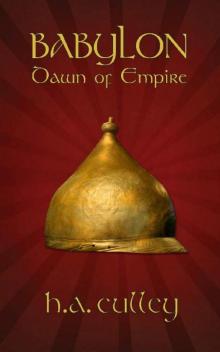 Dawn of Empire
Dawn of Empire Seeking Jerusalem
Seeking Jerusalem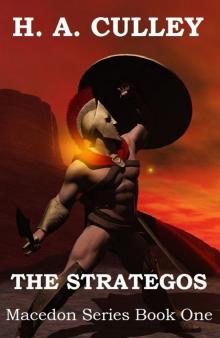 The Strategos
The Strategos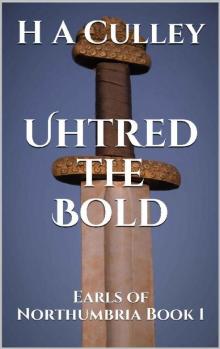 Uhtred the Bold
Uhtred the Bold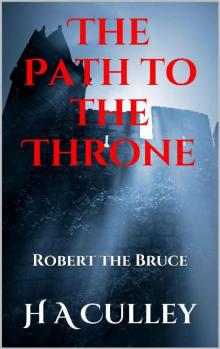 The Path to the Throne
The Path to the Throne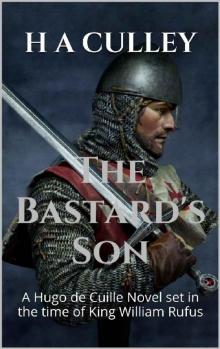 The Bastard's Son
The Bastard's Son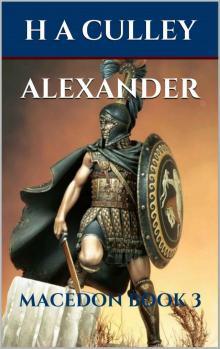 Alexander
Alexander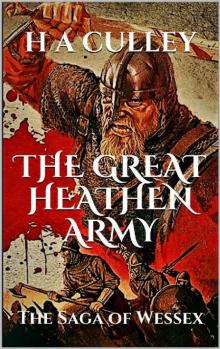 The Great Heathen Army
The Great Heathen Army The Sacred War
The Sacred War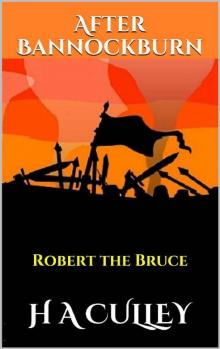 After Bannockburn
After Bannockburn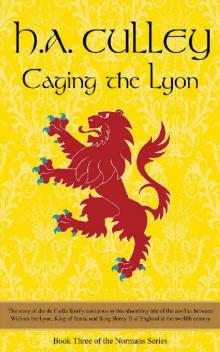 Caging the Lyon
Caging the Lyon The Bastard's Crown
The Bastard's Crown WHITEBLADE
WHITEBLADE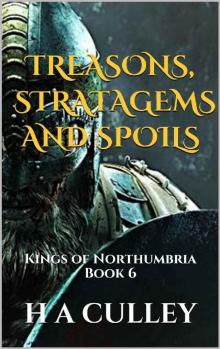 TREASONS, STRATAGEMS AND SPOILS: Kings of Northumbria Book 6
TREASONS, STRATAGEMS AND SPOILS: Kings of Northumbria Book 6 THE POWER AND THE GLORY: Kings of Northumbria Book 4
THE POWER AND THE GLORY: Kings of Northumbria Book 4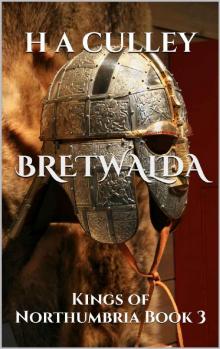 BRETWALDA: Kings of Northumbria Book 3
BRETWALDA: Kings of Northumbria Book 3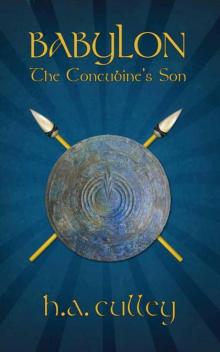 The Concubine's Son
The Concubine's Son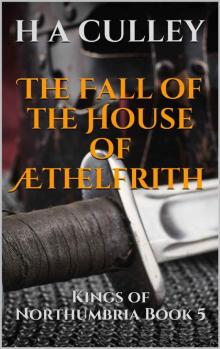 The Fall of the House of Æthelfrith: Kings of Northumbria Book 5
The Fall of the House of Æthelfrith: Kings of Northumbria Book 5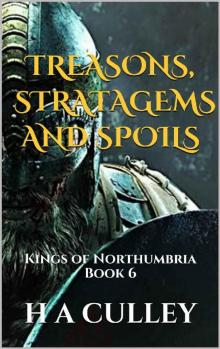 TREASONS, STRATAGEMS AND SPOILS
TREASONS, STRATAGEMS AND SPOILS THE POWER AND THE GLORY
THE POWER AND THE GLORY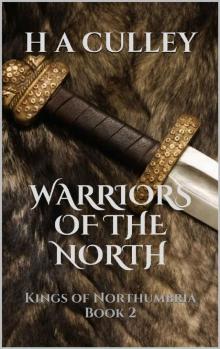 WARRIORS OF THE NORTH
WARRIORS OF THE NORTH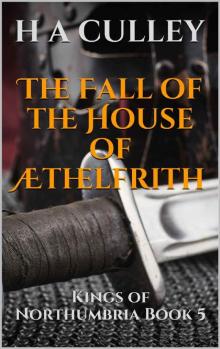 The Fall of the House of Æthelfrith
The Fall of the House of Æthelfrith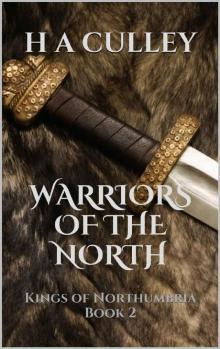 WARRIORS OF THE NORTH: Kings of Northumbria Book 2
WARRIORS OF THE NORTH: Kings of Northumbria Book 2 WHITEBLADE: Kings of Northumbria Book 1
WHITEBLADE: Kings of Northumbria Book 1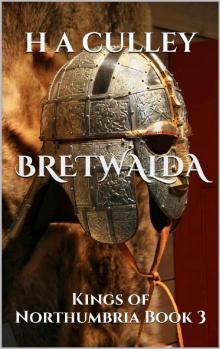 BRETWALDA
BRETWALDA